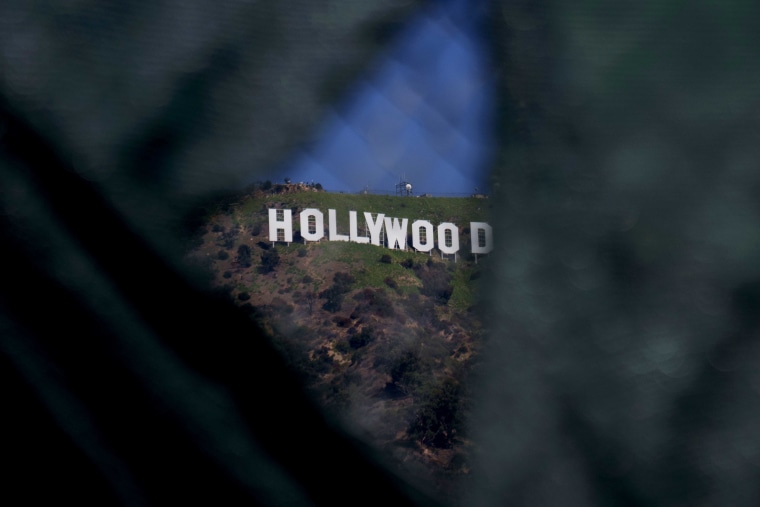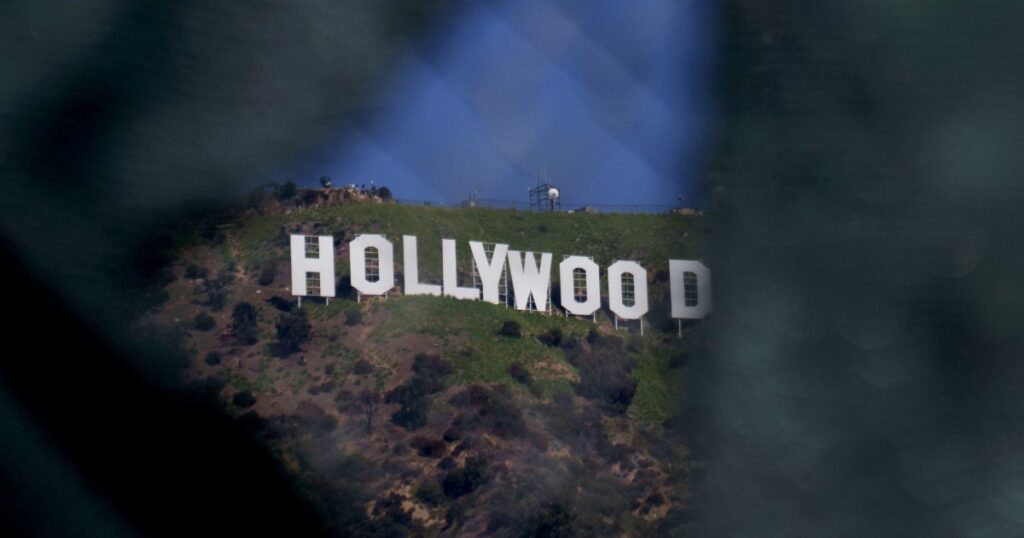President Donald Trump’s Sunday night proposal to impose tariffs on movies made outside the U.S. has been met with a mix of confusion and fear by the entertainment industry.
And by noon Monday, White House officials clarified that “no final decisions” had been made and that it was “exploring all options.”
Trump’s initial proposal, posted to Truth Social, called for tariffs “on any and all Movies coming into our Country that are produced in Foreign Lands,” citing what he said was the harmful impact of incentives being offered by other countries.
“WE WANT MOVIES MADE IN AMERICA, AGAIN,” Trump wrote.
But in a note to clients, analysts with Morgan Stanley called the idea “ill-defined,” noting 100% duties on some or all of the cost of a Hollywood production “would lead to fewer films, more expensive films, and lower earnings for all in the business.”
“The reality is that for any given film, there can be writing, production, editing, post-production, visual effects — all done in different countries,” they wrote.
The analysts noted Trump’s proposal failed to mention whether the tariffs would also apply to TV productions, what aspect of a production would be tariffed and how it would be charged, and whether the tariffs could be applied retroactively.
The tariffs would hit as Hollywood continues to navigate one of the most difficult periods in its history, as social media, changing tastes and habits among viewers, the dawn of artificial intelligence, and the fallout from the writers strike have rattled the industry — and crimped box-office returns. Last year’s box office totaled just $8.75 billion, a 3% decline from 2023 and well off the $11 billion pre-pandemic average.
It is true that Hollywood has increasingly opted to take production overseas, with Canada, New Zealand and especially the U.K. seeing some of the biggest jumps in spending and investment. Last year’s biggest live-action hits, “Deadpool & Wolverine,” “Wicked” and “Dune: Part Two,” were filmed in studios outside the U.S.
Yet unlike most sectors Trump has targeted for tariffs, the U.S. entertainment industry has a large trade surplus with the rest of the world, given continued foreign interest in American titles.
Multiple Hollywood representatives declined to speak about Trump’s proposal or did not respond to requests for comment.

The financial impact, meanwhile, was already being felt: In Monday trading, shares of most entertainment giants, like Netflix, Paramount and Warner Bros. Discovery, declined.
The proposal also comes as Trump has appointed Mel Gibson, Sylvester Stallone and Jon Voight as “special ambassadors” to bring “lost business” back. Notably, all three men have supported Trump and espoused conservative-leaning views.
White House officials initially referred additional questions about the proposed tariffs to the Commerce Department. In a post on X, Commerce Secretary Howard Lutnick said “We’re on it” above an account that reposted Trump’s Truth Social post.
Other analysts were more upbeat about the ability of content entities to avoid the tariffs. Analysts with Wedbush said, without firsthand knowledge of the White House’s vision, that as long as there was some element of a production performed in the U.S., a tariff could be “avoided or minimized.”
They added that studios would likely move some production elements stateside to placate Trump, though this would eat into their profit margins.
More substantially, the Wedbush analysts say they believe the entire tariffs episode could eventually subside.
“Over the longer term, we expect foreign country reaction and the assertion of its constitutional authority by Congress to cause Trump to change his mind,” they wrote.











More Stories
Trump administration to pay $1,000 to undocumented immigrants who self-deport
U.S. crude oil prices fall after OPEC+ agrees to surge production in June
Officer pleads guilty to manslaughter in fatal beating of New York inmate Robert Brooks